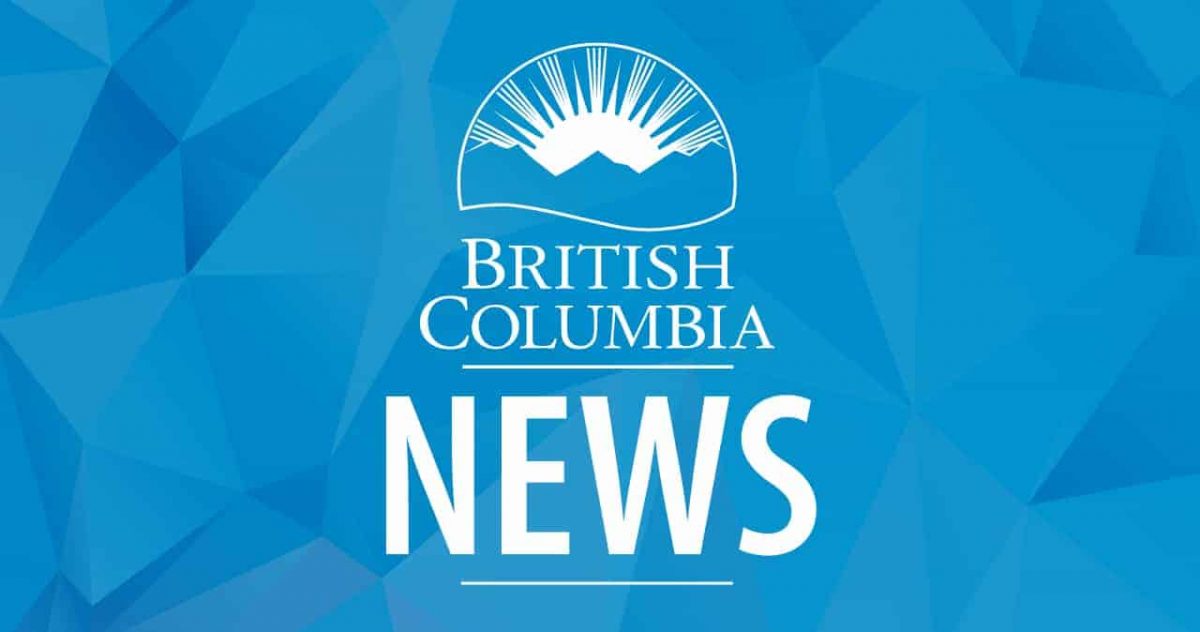
New compost systems moving ahead for two First Nations communities
A joint funding program between First Nations, the Province and the Government of Canada is helping communities divert organic waste from landfills.
The Kwadacha and Heiltsuk Nations will both receive funds from the Organics Infrastructure Program to create and expand their organic processing capacity. Currently, waste from the two remote First Nations communities is transported long distances to reach landfills. The funding will allow them to compost organic waste within their communities, reducing transportation costs and greenhouse gas emissions by keeping organic matter out of landfills. It will also provide local job opportunities and produce Class A compost for gardening and local food production.
“People in communities throughout B.C. play a key role in keeping organic waste out of our landfills, which is essential to reducing the release of greenhouse gases,” said George Heyman, B.C.’s Minister of Environment and Climate Change Strategy. “These latest investments show how significant the rewards can be for the environmental, economic and sustainability of First Nation communities.”
Combined, the Kwadacha Nation and Heiltsuk Nation projects will process almost 500 tonnes of organic waste each year, resulting in a reduction of more than 5,600 tonnes of carbon dioxide (CO2) equivalent emissions by 2034. Organic waste represents 40% of material sent to municipal landfills in B.C. and generates 3.5% of the province’s greenhouse gas emissions.
“By working with Indigenous communities across Canada, such as the Kwadacha and Heiltsuk Nations, we are reducing greenhouse gas emissions, building more resilient communities and creating jobs,” said Steven Guilbeault, federal Minister of Environment and Climate Change. “Investments in waste-management infrastructure, like these two composting projects, are great examples of how local climate actions get us closer to reaching our national emissions reduction goals, while contributing to a healthy, sustainable Canada.”
As much as two-thirds of the eligible project costs will be covered by the provincial and federal governments, with the Nations funding the remaining costs. The Kwadacha Nation will receive nearly $300,000 for its first community compost facility. The Heiltsuk Tribal Council will receive more than $300,000 to upgrade and expand their current compost system, which is at capacity and attracting wildlife.
“The high costs of importing food and removing waste are tough realities for the Heiltsuk Nation and many of the other remote communities within the North Coast constituency,” said Jennifer Rice, MLA for North Coast. “It is a core value of the Heiltsuk Nation to maintain a healthy environment, and this composting project is one of many examples of their vigorous stewardship of their lands and waters.”
The $30-million Organics Infrastructure Program combines as much as $10 million in federal funding from the Low Carbon Economy Leadership Fund, $10 million from the Province and $10 million in matching funds from local government applicants and their partners.
The program supports B.C.’s CleanBC climate plan to divert more organic waste from landfills and create a cleaner, better future for everyone. Since 2020, 14 recipients have received funding to expand their composting ability under the Organics Infrastructure Program. All projects must be completed and operational by March 31, 2024.
Quotes:
Marilyn Slett, Chief Councillor, Heiltsuk Tribal Council –
“Expanding our current community composting system will more than triple the amount of organic matter we process and reduce the amount of solid waste produced by the community. This will move us further toward our goal of being a zero-waste community, benefiting our Nation and the ancestral lands, which sustain us.”
Darryl McCook, Chief, Kwadacha Nation –
“With the nearest landfill 570 kilometres away, this compost facility will be a turning point in the Kwadacha Nation’s ability to reduce waste and achieve the community’s self-sustainability goals. This project will bring the community together as a force of positive environmental change.”
Learn More:
For information about the Organics Infrastructure Program, visit: www2.gov.bc.ca/gov/content/environment/waste-management/food-and-organic-waste/organic-waste-diversion/organics-infrastructure-program
A backgrounder follows.
